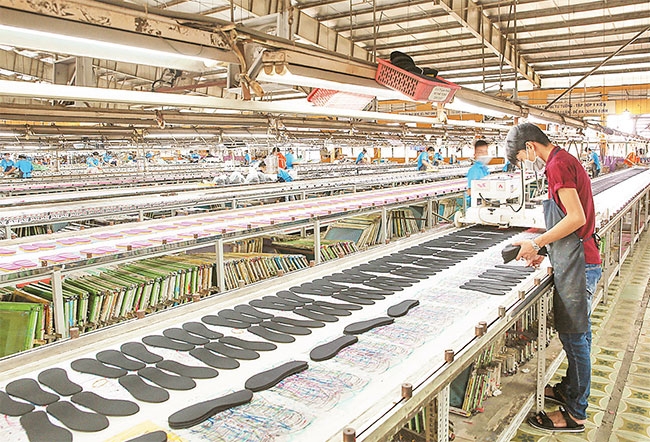HCM City’s exports are still growing, but slowing down, and so it needs to take measures to boost them if it wants to retain its position as the country’s economic hub, a conference heard yesterday.

HCM City’s exports are still growing, but slowing down, and so it needs to take measures to boost them if it wants to retain its position as the country’s economic hub, a conference heard on Thursday.
Speaking at the conference on the city’s investment and export situation, Nguyen Thanh Phong, chairman of its People’s Committee, said export growth has fallen below 10 per cent a year in the last 10 years.
Nguyen Ngoc Hoa, deputy director of the city Department of Industry and Trade, said the city’s exports as a ratio of the country’s has gradually decreased from 50 per cent in 2000 to just 16 per cent last year when it was around US$38 billion.
China is still the city’s largest market, followed by the US, Japan, Hong Kong, South Korea, Germany, the Netherlands, India, Taiwan, and Malaysia, he said. But exports to the EU account for a very low rate, not commensurate with the potential, he said.
Exports are increasingly dependent on foreign businesses. In 2005 Vietnamese companies accounted for 55 per cent of the city’s exports but last year foreign firms accounted for 51.1 per cent.
Many items with high export turnover such as electronics products, textiles and footwear are mainly produced and exported by FDI firms.
Dr Dinh Cong Khai, director of the Institute of Public Policy, said: “The city's exports have been losing their competitive advantage, and its ability to diversify its export products and markets remains low.
"Its export has still focused on quantity growth, and there is no export development strategy based on its comparative advantages.”
The most obvious outcome is that its export growth rate tends to be lower than that of other localities like Bac Ninh, leading to a decrease in the proportion of its exports to the country’s, he said.
“However, we have not properly assessed the causes constraining export growth based on the competitiveness of industries and their value chains.”
Besides, the city has not identified industries and products with high export growth potential and their competitive advantages based on scientific analyses, he said.
It is necessary to evaluate the competitiveness of export products and industries to identify which ones the city should support for boosting exports, he added.
Delegates said in the short term the city has to continue exporting product groups that fetch large revenues such as electronics, textiles, footwear, agriculture - fisheries, rubber, chemicals, and furniture, but must actively prepare the foundations for upgrading industry and restructuring exports in the long term.
Talking about export orientation for the next decade, Hoa said the city would focus on quality and move towards export support services, enhancing the exports of intangible goods and services such as software and digital content and improving value addition.
The city would work to improve the competitiveness of industries with high export growth potential and help enterprises diversify their export markets, especially those that have free trade agreements with Viet Nam, and develop their human resources, he said.
It would also further improve administrative services and have policies to create a sound environment for businesses to boost exports, he added.
Do Ha Nam, general director of Intimex Group JS Company, said the city should further improve its logistics and transport infrastructure to facilitate exports.
Phi Anh Tuan, deputy chairman of the HCM City Computer Association, said the city needs to have policies to support universities in training human resources who could handle new technologies in future and help businesses adopt technologies to transform their operations.
Tran Vinh Tuyen, deputy chairman of the city People’s Committee, said with the current global economic situation and industry 4.0, competitive advantages of an industry 10 years ago would no longer be valid.
To enable the city's exports to develop in a sustainable manner, he said it needs to enhance linkages with other neighbouring provinces and cities, especially in terms of transportation, and human resource. — VNS





